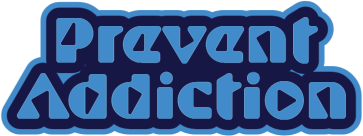For years, 12-step programs such as Alcoholics Anonymous and Narcotics Anonymous have been the mainstay of modern addiction treatment. But are they enough? Recently, the relevance and effectiveness of 12-step programs has been questioned. This article in The Atlantic discusses how some physicians are concerned with a non-scientific approach to addiction.
For others, the 12-step approach does not sit well with them or has failed to provide an effective or comprehensive treatment. Fortunately, there are many options available beyond the traditional treatment.
Who Can Benefit From These Programs?
These programs may be an ideal fit for you if:
- You cannot find a 12-step program that you are comfortable attending. That may prevent you from sharing and getting closer to recovery.
- You do not believe in a higher power. Atheists and agnostics may not feel comfortable going through the steps because of this.
- You want to feel empowered, rather than feel powerless before your addiction.
Evidence-Based Programs
The advent of evidence-based treatment programs may provide alternative options for those who have not been able to embrace 12-step programs on their journey to recovery.
Exactly what are these programs? According to this post from Psych Central, these programs provide a scientific route to treatment that includes:
- A complete assessment of the individual.
- Stabilization or detoxification from using the substance with medical supervision. This can include medication.
- A customized treatment plan for the patient.
In addition, these programs do not depend on an outside source or higher power for treatment, but instead empower the patient himself to conquer the issues and problems that lead to addiction.
There are numerous treatment programs available under the umbrella of evidence-based treatment (EBT) programs. Very Well Mind lists these approaches:
- Cognitive Behavioral Therapy (CBT): According to the APA, “CBT can help addicted patients overcome substance abuse by teaching them to recognize and avoid destructive thoughts and behaviors.”
- Supportive Expressive Therapy: This treatment is for severe substance abuse disorders. It focuses on treating psychological problems behind addiction, most likely starting in childhood.
- Motivational Interviewing: In this approach, the client works with a counselor who motivates him to bring on his own “motivational statement and behavioral change,” according to NIH. It’s not confrontational; rather it’s meant to encourage the client to embrace beneficial change.
- Family Therapy or Couples Counseling: For adolescents and partners, these approaches have been shown to be effective for treatment.
- Social Behavior and Network Therapy: This approach focuses on the power of social networks to support individuals in treatment and can employ many approaches.
Beyond EBT: More Options For Treatment
While EBT is more popular among doctors and therapists, there are other options available as well. The growing popularity of mindfulness and alternative protocols has helped grow a new strain of treatments that might be a good fit for you. Some of these include:
- Meditation and mindfulness practices can regulate mood. Some forms may be intensive enough to eliminate negative behaviors, possibly even addiction.
- Yoga is a practice that engages mind, body and spirit. It is part exercise, part meditation and part mindfulness. Check out Yoga for Recovery to find retreats, especially for people in recovery.
- Swimming is an excellent choice for recovery, too. Exercise has great benefits for both your mind and body. It can help you detox and releases chemicals that can reduce your cravings. Swimming has the added benefit of being easier on your joints and providing more range of motion. It can also be relaxing.
If your addiction is severe, these treatments may not be enough for you, however you can certainly do them in conjunction with a more intense program.
Twelve-step programs are not for everyone. If you have not had success or don’t feel comfortable in one, there are many other treatment options for you to try. Make your way to sobriety in whatever way works best for you.
Photo Credit: Unsplash
